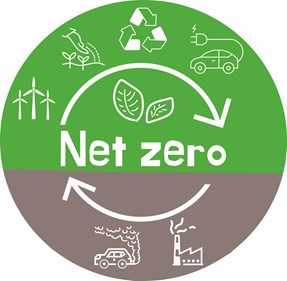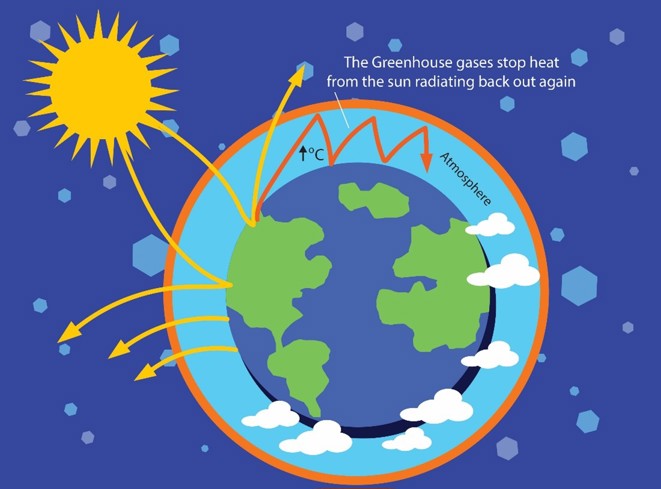Net Zero Explained
Everyone is talking about ‘net zero’; but what does it mean and why is it so important?
Defining Net Zero
‘Net zero’ simply means achieving a balance between the greenhouse gases (GhGs) we emit into the atmosphere and the greenhouse gases removed from the atmosphere.

We emit greenhouse gases into the atmosphere through our activities at home, at work, when travelling and when buying goods or services. There are emissions associated with almost everything we do. The total of all the emissions we produce through our activities is known as our “Carbon Footprint”.
Heating your home using a fossil fuel boiler, using lots of electricity (if it is not all from renewable sources), driving to the supermarket in a petrol or diesel car or buying products that have to be shipped from overseas are all examples of things that contribute to your carbon footprint.
Every person, home, business and organisation has its own carbon footprint. You can calculate your own carbon footprint here.
For example, in 2019 Mid Sussex’s carbon footprint was 736 kilotons of carbon dioxide. Most of our carbon footprint was from the fuel consumption of homes (40%) and road transport (36%).
Removing the emissions we have already released into the atmosphere is possible, through creating more ‘carbon sinks’ and developing ‘carbon capture and storage’ solutions. Across the globe, scientists and engineers are working hard to develop new ways of doing this; but it is difficult. The best way to address this is by reducing what we emit in the first place!
Net Zero and Climate Change

Releasing greenhouse gas emissions (GhGs) into the atmosphere leads to a layer of gases which trap the sun’s heat which is radiated back off the earth. The more GhGs there are in the atmosphere, the more insulated the Earth becomes, causing temperatures to rise. This is called the greenhouse effect. Temperature rises cause our climate (the average weather conditions over many years) to change and become more unpredictable.
Sea level rise, heat waves, wildfires, flooding, droughts and other extreme weather events becoming more common and severe are the results of our climate changing. These things impact on communities, businesses and livelihoods; and in a globalised world, problems elsewhere can have a huge impact on our lives, too. Climate change impacts us all, but the world’s vulnerable communities are often hardest hit. We may not always be able to see the impact our activities have – but somewhere, someone is feeling the effects.
We must achieve net zero as soon as we can to stop irreversible temperature rises and devastating climate change. Check out the latest reports from the Intergovernmental Panel on Climate Change (IPCC) to get up to speed on exactly what’s happening to our climate: IPCC — Intergovernmental Panel on Climate Change.
How can I help?
Climate change is a global problem, but each of us have an important part to play in the solution.
Mid Sussex District Council is part of the West Sussex Climate Action Group. You can have your say and see what climate action initiatives are going on in your area at the Resident Climate Action Hub:
Ways to reduce the carbon footprint of your home, visit: A Net Zero Home.
Saving your business money while reducing carbon, visit: A Net Zero Business.
To see how Mid Sussex District Council is working towards net zero, visit: A Net Zero Council or our Sustainable Economy Strategy.
Further information
- Terrified by the terminology? Antagonised by the abbreviations? Check out our helpful jargon buster!
- Check out the West Sussex County Council website for more information at a regional level:
- The UK Government have committed to becoming net zero by 2050. Read more about our national net zero strategy here
